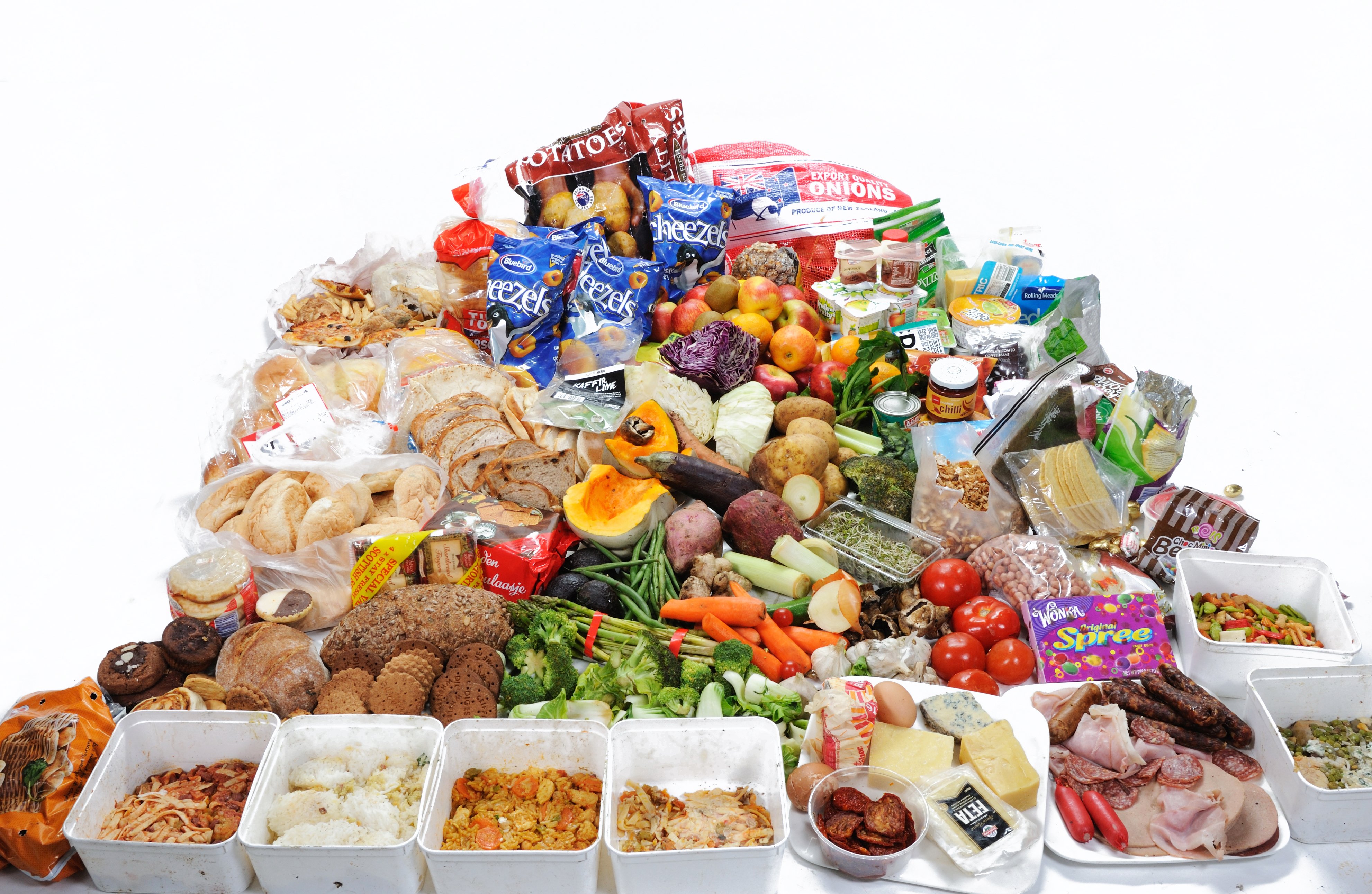It was a historic day yesterday with the US elections evoking wildly polarised reactions – but the sustainable living issues we are faced with are bigger than individuals. While we’ve endured a campaign that was overwhelmingly divisive and frankly, painful at times, we barely heard any mention of climate change or what is going to be done about the impending perils that loom over us.
Previously, we had asked kids how they would protect nature – and their answers will surprise you. If these young bright minds are already geared up for change, why can’t we make a few positive changes in our lives?
The question of what kind of planet, what kind of values we pass on to our children now needs to be asked louder than ever. The future of the Paris climate agreement and the implementation of global climate action may hang in the balance but in the meantime, here’s what we can do to ensure that our legacy to our children is a healthier, sustainable planet. Governments need to be held accountable for their actions, and as individuals we must also play our part in securing the future of the generations to come.
Here are some simple changes you can embrace to make a big difference.
Live Sustainable
Think Green for your home: Did you know that even toilet paper that you choose could damage the environment? When buying toilet paper, paper towels and other tissue products, buy sustainably-sourced paper products. Look for either 100% recycled content or FSC-certified tissue (in the US).
Plastic bags: The US uses 100 billion plastic bags annually, consuming about 12 million barrels of oil. Less than 1 per cent of plastic bags are recycled. Get reusable bags for plastic bags are dumped in the ocean. See this infographic by Dive.in for how it affects you and marine life directly.
Herbicides and pesticides: Many of these take a long time to degrade and build up in the soil or throughout the food chain. Predators like hawks, owls and coyotes can be harmed if they eat poisoned animals. Amphibians are particularly vulnerable to these chemical pollutants. Use alternatives to pesticides.
Buy recycled paper: Get recycled paper from sustainable products like bamboo and Forest Stewardship Council wood products. Avoid furniture made from wood from rainforests. Recycle your cell phones – a mineral used in cell phones and other electronics is mined in gorilla habitat. Minimize palm oil use as forests where tigers live are being cut down to plant palm plantations.

In a new oil-palm plantation near Sungaihantu, in South Kalimantan, the skeleton of a tree is the last relic of the rainforest that once was.
Recycle: In 2011, 66.8 percent of paper consumed in the United States was recycled. Every ton of paper that gets recycled saves more than 3.3 cubic yards of landfill space. 87 percent of us have access to curbside or drop-off recycling for paper, so there’s just no excuse to not recycle.
If you’ve ever wondered about recycling shredded paper or what to do with those stapled documents, here’s a handy guide to recycling paper.
Better yet, Go Paperless
- Choose paperless options for Bills and Sign up for e-statements.
- Stop Junk Mail and Catalogues.
- Opt out of Credit Card offers.
- Choose digital options for storing your documents, bills, med records, financial documents.
- Use electronic signature apps.
Buy Sustainable
Be better informed to make better choices in your daily life. Find out where your food is coming from.
Greenpeace estimates that 90 per cent of the timber produced in the Amazon is of illegal origin, fueled by bribes, corruption, and intimidation. Though US was the first country to ban imports of illegally forested wood, illegal wood continues to go into products we use every day, from paper to pencils to the floors and furniture in our homes.
If you’re looking for new furniture or building materials, track down wood products that have the FSC seal, which indicates that they were sourced in a sustainable way.
Choose products with Responsible Palm Oil Sourcing
Palm oil is absolutely everywhere — from food like breakfast cereals to pet food and even shampoo and toothpaste. Yet palm oil plantations are the leading cause of deforestation and peatland destruction.
Use the Greenpeace Palm Oil Scorecard to find out whether the brands you buy are helping or hurting the planet.
Travel Sustainable
Visit a national wildlife refuge, park or other open space : Protect the habitat to protect wildlife. Scientists say the best way to protect endangered species is to protect the places where they live. Volunteer at your local nature center or wildlife refuge. Go wildlife or bird watching in nearby parks. Wildlife related recreation and green travel creates millions of jobs and supports local businesses. Look but don’t touch, follow the Ecophile code.
Choose a sustainable travel operator: Check to see if your tour operator has an animal welfare policy and never pay to get a selfie with a wild animal.
Pledge to shun elephant rides and circuses: Elephants are not for our entertainment, instead learn How to Hang out with them Without Hurting them.

A mahout feeds and elephant at Elephant Nature Park. Photo: Adbar/ CC BY-SA 3.0 via Wikimedia Commons
Souvenir Alert: Souvenirs from your trip are wonderful, but buy responsibly. For example, the Caribbean jewel – the Mesoamerican Reef is the most important barrier reef in the Western Hemisphere and the second largest in the world. It shelters the mammoth whale shark, endangered salt water crocodile, the world’s largest populations of manatees, 65 kinds of stony coral and more than 500 types of fish. On land, the reef’s watershed shelters jaguars, howler monkeys and birds like the quetzal.
In this paradise, do not buy coral, orchids and cacti, shells, leather from caiman, crocodiles, lizards and snakes, insects like mounted butterflies, sea turtle products, ivory, live monkeys and Mexican parrots, ocelot, jaguar fur.
Read our full guide on How to Help Wildlife on the Edge of Extinction.
Stop Food Waste
Be mindful of which foods, when wasted, are possibly the most shameful to throw out. Setting aside the ethical issues and environmental issues surrounding meat production, animal products could very well be the worst items to chuck out, simply because they require the most resources to produce, and farm animals also result in some of the world’s largest contributions to greenhouse gas emissions. Throwing away meat is also throwing away all of the food and water that animal consumed during its lifetime, and means all of the methane that animal produced and sent into the atmosphere was for nothing.
Considering product packaging while shopping or preparing to throw food out. You might also end up throwing out plastic, cardboard, or other environmentally-sensitive packaging as well. These items’ packages take energy and resources to produce and ship. (And if need be, you’re better off trying to recycle them anyway).
Start collecting your compost. Herb, fruit and vegetable scraps (rinds, peels, seeds, and the like), spent coffee and tea grounds, eggshells, oats, rice, paper napkins, decaying flowers, are all items that can be added to compost piles. If there’s no curb side composting pick-up in your town or city, contact the local government about it, and/or look for farmers markets and other nearby drop off points in your area.
Have re-useable containers or packaging on hand, whenever possible. Pack your lunch (and if you have kids, theirs too!) in re-useable containers: bags, sandwich tins, water bottles, and so forth. And while you’re at it, why not throw in a cloth napkin as well? Also, more people are bringing their own to-go mugs into local coffee shops – there’s no need to feel awkward about not wanting to create more rubbish! Before going grocery shopping next, find out which supermarkets offer bulk bins for eco-friendly shopping. In America, Whole Foods, and even Giant often have these, but they aren’t as common in the UK yet.
Eat less Meat
According to the World Resources Institute, cattle enterprises are responsible for up to 80 percent (millions of acres) of Amazon deforestation. The livestock sector accounts for 14 percent of greenhouse gas emissions worldwide, (almost equivalent to transportation sector emissions) and it is the most significant contributor to pollution of streams, rivers and coastal waters worldwide.
If we decide to eat less meals with meat or dairy each week, we can have a huge impact on the health of the planet-
- Commit to reducing your meat and dairy consumption by a few meals per week.
- Tell friends about your choice to find alternative proteins.
- Begin eliminating processed foods from your diet, which harm your health and the environment.
- Make fresh fruits and vegetables a bigger part of your diet.
- Grow your own food by starting a small garden or joining a local food cooperative.








